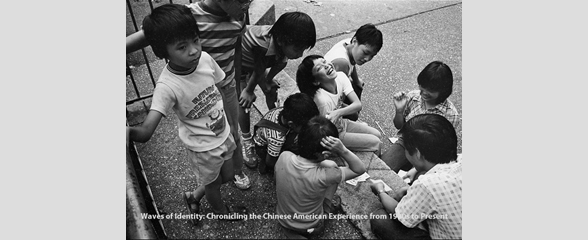Chinese Americans;Chinese American families;Chinatown (New York, N.Y.);Honolulu (Hawaii);Guangdong Sheng (China);Hakka dialects;Hakka (Chinese people);Trinidad;Jamaica;Contract labor;Hawaii;Christianity;Immigration & society;Laundry;Laundry workers;Panama Canal (Panama);Seamanship;Sailor;Pearl Harbor (Hawaii), Attack on, 1941

1982.002.001 Oral History Interview with Daniel Chu
Daniel Chu was born in Kohanaiki, Hawaii in 1914, the tenth child in a large family of eight boys and four girls. His father’s parents were Hakka and had first migrated to Trinidad or Jamaica in the 1870s to work on rice or sugar plantations. After their contracts ended, they sent his father, who was eight years old at the time, back to their home village in Guangdong Province. When he was eighteen, they sent for him to join them where they had settled in Honolulu, Hawaii. Daniel’s mother was born in Honolulu. Her parents, also Hakka, had immigrated to Hawaii around the same time as his father’s parents. Daniel begins the oral history by recounting this immigration history, as well as memories and details about his family’s life in Hawaii. He speaks about his father’s recruitment as a lay minister by the Episcopal Church and the importance of religion in their lives, as well as his parents’ tailoring work and ownership of a western dressmaking business. Daniel next discusses his family’s move to New York in the 1920s. He describes his mother as rather remarkable for not being afraid to pioneer in New York and move her family there. Daniel, then age 15, followed with his father and three siblings in 1929. He recalls his mom owning a share in wet wash laundries in the Bronx, his first contact with Chinese laundrymen at Sing Lu Laundry across the street, being part of the neighborhood St. Margaret Episcopal Church and conducting English classes for Chinese laundrymen there, and his schooling at P.S. 51 in the Bronx, James Monroe High School, and Oberlin College. He had only been able to save enough to attend one year of college. After his money ran out, it was 1935 and the nation was still in the midst of the Great Depression. He describes jobs as scare and difficult to get, especially if Asian. He managed to get hired to work on a couple of ships, including one which sailed from New York to the Canal Zone and back. He got fired from that job because he rebelled and snuck ashore in Colón. In those days, Chinese seamen were not allowed to get off in the Panama Canal Zone, but Daniel insisted that he was an American citizen and as such should be allowed to go ashore like everyone else. After he left the ship in 1936, he went to work on a laundry delivery truck for his mom, who at this time owned the Sun Lun Chung Company, a grocery store at 4 Mott Street, and a laundry supply store. It was from this job of collecting laundry needing washing all over Bronx that he says he gained a window into laundrymen’s lives. After a year in this job, his mother got him another job with a Chinese print master on Park Place, the Row Schew Company run by Jimmy Lawson. The store upstairs sold mostly laundry supplies, while the printing press he assisted with downstairs made a brisk business printing laundry tickets. After leaving this printing job in 1938, he describes taking a cross country trip to San Francisco with a friend and going back to sea again to work as a galley help on a couple of ships, including one sailing from San Francisco to Manilla via the Honolulu, Yokohama, Kobe, Shanghai, and Hong Kong route. During all of this time, he had still been hoping to save money to return to Oberlin, however, found it difficult to save aboard the ship. Hearing of higher wages in Honolulu, he decided to return to Hawaii in October of 1941. There, he bore firsthand witness to the Japanese bombing of Pearl Harbor and says that his dreams of returning to college shattered when the war began.